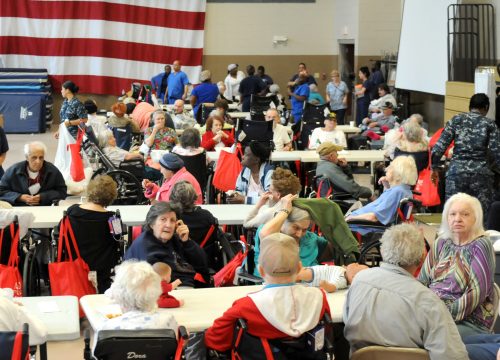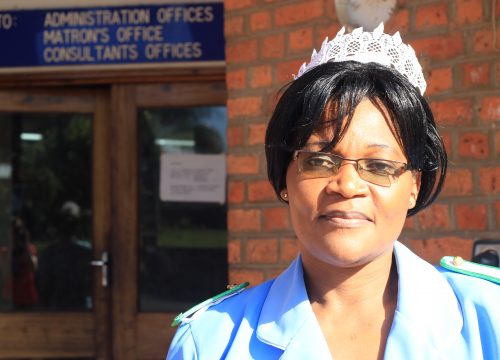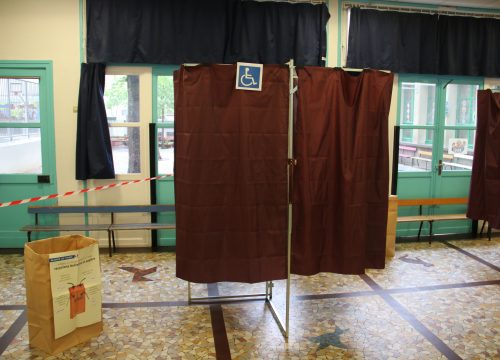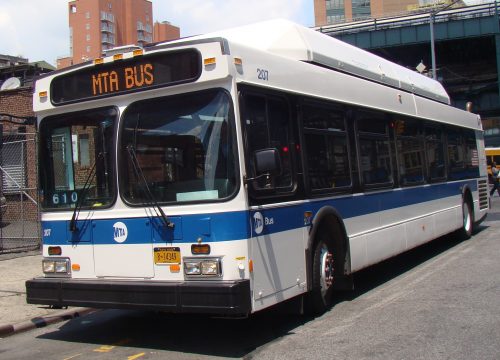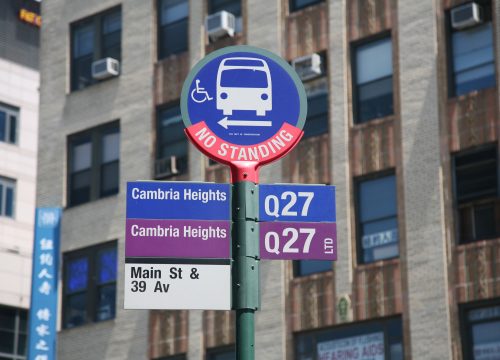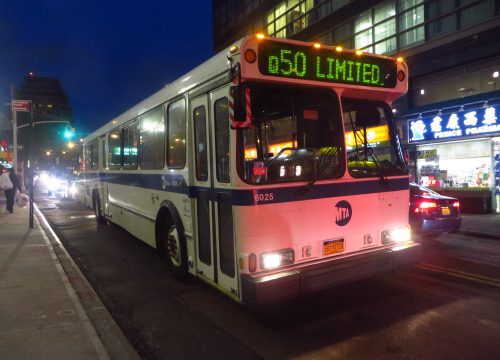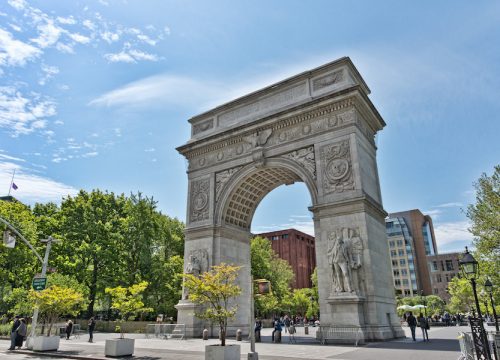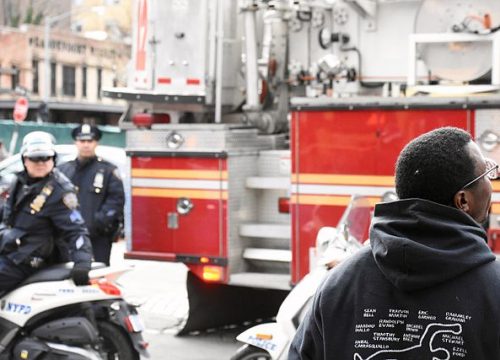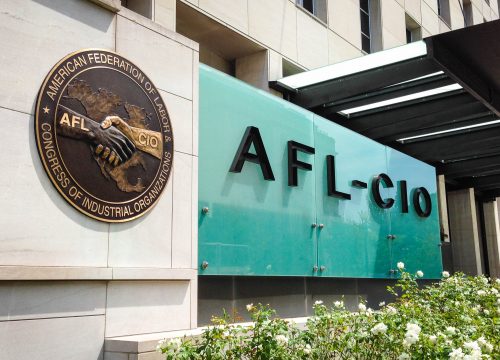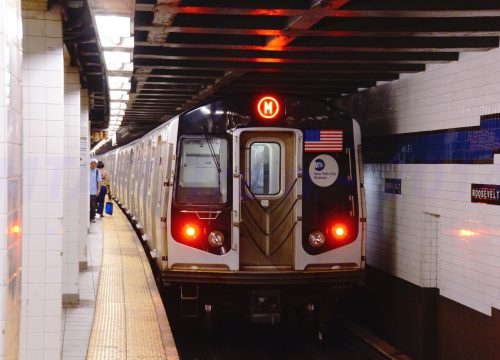-
800 RIVER ROAD OPERATING CO. LLC, dba Woodcrest Health Care Center v. NLRB
Gladstein, Reif & Meginniss, along with attorneys for the National Labor Relations Board (“NLRB”), successfully convinced the Third Circuit Court of Appeals to enforce an NLRB order finding that the employer had unlawfully withheld benefit improvements from unit employees just days before a representational election. As a result, the Employer is required to comply with the underlying NLRB order and make all bargaining unit employees whole for any losses they suffered as a result of […]
-
1199SEIU United Healthcare Workers East v. Alaris Health at Hamilton Park and Confidence Management Systems
Gladstein, Reif & Meginniss successfully represented the Union in an action to confirm an arbitration award which held that certain employers violated the Union’s collective bargaining agreement by failing to apply it to certain bargaining unit employees. The firm brought the case in the District Court for the Southern District of New York which enforced the arbitration award in full. The employers appealed to the Second Circuit which affirmed the District Court’s decision. The Second […]
-
Perez v. City of New York
In Perez v. City of New York, Gladstein, Reif & Meginniss successfully convinced the United States Court of Appeals for the Second Circuit to overturn a judgment dismissing overtime compensation claims and then, after defeating a renewed summary judgment motion, won a settlement for more than $1.7 million (plus attorneys’ fees) for NYC Parks Department employees. The case, which GR&M litigated over the course of five years, was initially dismissed by a district court. GR&M prosecuted […]
-
Somerset Valley Rehabilitation and Nursing Center v. NLRB
In Somerset Valley Rehabilitation and Nursing Center v. NLRB, Gladstein, Reif & Meginniss, along with attorneys for the National Labor Relations Board (“NLRB”), successfully persuaded the Third Circuit Court of Appeals to enforce two orders of the NLRB pertaining to employees’ efforts to unionize. The court upheld the Union’s certification and found that the employer had unlawfully eliminated licensed practical nurse (“LPN”) positions in retaliation for the LPNs’ efforts to unionize. The court also upheld […]
-
Zheng v. Liberty Apparel Co.
After the Second Circuit Court of Appeals reinstated the plaintiffs’ claim, the District Court denied defendants’ summary judgment motion seeking dismissal of those claims without a trial. The Court held that garment worker plaintiffs had proffered sufficient evidence that the defendants exercised operational control over the plaintiffs such that they were entitled to a trial of their claims against the manufacturers. After a jury trial, plaintiffs prevailed against both the manufacturing company and the individual […]
-
Zheng v. Liberty Apparel Co. 2003
The Second Circuit Court of Appeals held that an entity can be a joint employer under the federal and New York minimum wage and overtime compensation laws even without formal control over hiring and firing, schedules, payment, and records. An “economic reality” determination required review of all of the circumstances including indications of functional control. The garment worker plaintiffs’ wage-and-hour claims were therefore reinstated. Zheng v. Liberty Apparel Co., 355 F.2d 61 (2d Cir. 2003)
-
Ayres v. 127 Rest. Corp. d/b/a Le Madri Rest.
The Court granted plaintiffs partial summary judgment finding that the defendant restaurant illegally withheld tips from waitstaff plaintiffs and that said retention was willful. As such, the restaurant was not entitled to take a tip credit against the wages of the waitstaff, who were entitled to double damages. The Court found that the general manager of the restaurant was an agent of the employer and had retained $20,000 in tips belonging to the waitstaff. Ayres […]
-
NLRB v. Regency Grande Nursing and Rehab. Ctr.
In these cases, the Third Circuit Court of Appeals enforced the NLRB’s orders (1) sustaining charges brought by 1199 SEIU that the employer unlawfully recognized a company union that lacked majority support, rejecting the employer’s defense that the charge, filed more than six months after the recognition, was time-barred because the recognition was fraudulently concealed; (2) requiring the employer to reimburse employees for the “union” dues deducted from their paychecks pursuant to the unlawful bargaining […]
-
Wayneview Care Ctr. v. NLRB
The Board found that the employers unlawfully locked out employees without a legitimate business justification and in an effort to coerce the Union into accepting unilaterally implemented terms and conditions of employment. Wayneview Care Ctr. v. NLRB, 664 F.3d 341 (D.C. Cir. 2011), enforcing Wayneview Care Ctr. and Victoria Health Care Ctr., 356 N.L.R.B. No. 130 (2010)
-
Verizon N.Y. Inc. v. NLRB
The D.C. Circuit Court of Appeals enforced the NLRB’s order finding that the employer’s practice of permitting employees to participate in blood drives on work time for up to four hours twice a year was a term and condition of employment that could not be unilaterally eliminated. The Court rejected the employer’s defenses that its decision to no longer provide this support for a charity was a core entrepreneurial concern that did not vitally affect […]
-
NLRB v. NJ Bell Tel.
The Third Circuit Court of Appeals enforced the NLRB’s order that the Weingarten right to union representation was triggered by employee inquiry whether she should have a union representative at a meeting. The Court also found that the Union was entitled to receive a summary of witness statements and an investigative report by security because the employer had relied on this information in its determination to discipline an employee. NLRB v. NJ Bell Tel., 936 […]
-
Woodcrest Healthcare Center
The National Labor Relations Board held that the employer committed numerous unfair labor practices before and after the representation election by withholding improvements in health insurance benefits from bargaining unit employees, interrogating employees, and creating the impression of surveillance. Woodcrest Healthcare Center, 360 N.L.R.B. No. 58 (2014)
-
Somerset Valley Rehab & Nursing Center
The National Labor Relations Board rejected the employer’s efforts to set aside the election based on the union’s distribution of a flyer that read “We’re Voting Yes” alongside photographs of employees who had not specifically said the quoted words. According to the NLRB, because the union had sufficient evidence of the photographed employees’ union support, the flyers did not mislead voters or otherwise constitute objectionable conduct. Somerset Valley Rehab & Nursing Center, 357 N.L.R.B. No. […]
-
Bon Secours Charity Health Sys.
A National Labor Relations Board judge ruled that the employer’s anti-union campaign destroyed the conditions necessary for a free and fair union representation election, set aside the prior election results, and granted the union’s request for a new election. The employer’s unlawful conduct included surveillance of employee union activity, threats to discharge employees and cut wages, threats of loss of flexibility in scheduling and shifts, and prohibiting employees from posting union literature on bulletin boards. […]
-
Regency Heritage Nursing and Rehab. Ctr.
The National Labor Relations Board ordered the employer to recognize, deal with, and provide access to a union organizer that it had banned from its facility for allegedly holding up an offensive sign during a contract campaign. Regency Heritage Nursing and Rehab. Ctr., 353 N.L.R.B. No. 103 (2009), enforced, NLRB v. Regency Heritage Nursing and Rehab. Ctr., 437 F. App’x 65 (3d Cir. 2011)
-
Sprain Brook Manor Nursing Home
The National Labor Relations Board ordered reinstatement with backpay for two workers fired in retaliation for organizing a union, and the restoration of overtime hours and back pay for three other union supporters whose hours were reduced after the union won a representation election. The Board also found that the Employer unlawfully photographed and placed under surveillance employees engaged in picketing, and that it further violated the law by calling the police and hiring an […]
-
New Surfside Nursing Home and Local 144, SEIU
The Board ordered the employer to grant the Union access to its facility for reasonable periods and at reasonable times, sufficient to allow the Union’s representative to observe how work is performed in preparation for collective bargaining. New Surfside Nursing Home and Local 144, SEIU, 330 N.L.R.B. 1146 (2000)
-
Amalgamated Transit Union, Locals 1056 and 726 and N.Y. City Transit Auth.
In this interest arbitration, the Panel rejected NYCT’s claim that it did not have the ability to pay and therefore should not be bound by the pattern set by TWU Local 100. For the period from January 15, 2009 to January 14, 2012, the Panel awarded two 2% raises in each of the first two years and a 3% raise in the third year of the contract, as well as a reduction in health insurance […]
-
Transport Workers Union, Local 100 v. N.Y. City Transit Auth.
The court enjoined the continued use of the Transit Authority’s sick leave policy, under which employees were required to disclose information on diagnosis, prognosis and treatment with respect to any sickness that occasioned an absence of three days or more. Plaintiffs argued that the disclosure requirements violated the prohibition on disability-related inquiries found in the Americans with Disabilities Act. Following trial, the court ruled that the Authority could not continue to apply its policy to […]
-
Rodolico v. Unisys Corp.
The Court granted plaintiffs’ motion for Rule 23(b) class certification of state law claims for 126 engineers who were 40 or older when laid off by Unisys Corporation and found that the plaintiffs could maintain a collective action under the Age Discrimination in Employment Act on behalf of all employees who had “opted in” to the lawsuit. After deposing all 126 plaintiffs, the defendant settled. Rodolico v. Unisys Corp., 199 F.R.D. 468 (E.D.N.Y. 2001)
-
Chan v. City of N.Y.
The Second Circuit Court of Appeals affirmed a District Court holding that laborer plaintiffs, who had sued to recover wages at federal prevailing wage rates, were entitled to enforce the prevailing wage law under Section 1983 (civil rights statute). The Court also found that the private employer defendant could be said to be acting under color of state law as required by Section 1983 because it had a close nexus with the municipal defendants. After […]
-
Burka v. N.Y. City Transit Auth.
The firm’s client, a public bus operator, was suspended for 60 days after allegedly testing positive for marijuana. After trial, a federal court held that the procedures used in the disciplinary proceeding leading to the adjudication that he had ingested marijuana and to his suspension violated constitutional due process. Thereafter, the suspension was overturned and the firm’s client was awarded backpay. Burka v. N.Y. City Transit Auth., 739 F. Supp. 814 (S.D.N.Y. 1990)
-
Barrett v. Suffolk Transp. Servs.
A private transportation company fired three school bus drivers with excellent driving records because they had become 65 years of age, pursuant to a N.Y. Dept. of Education regulation prohibiting employment of school bus drivers at that age. The defendants, including the State Education Commissioner, asserted on the basis of a prior federal lawsuit that age was a bona fide occupational qualification and that the regulation was valid. After defense motions to dismiss the complaint […]
-
Boe v. Colello
A federal court struck down an Orangetown, New York ordinance requiring a license to sell a newspaper or periodical which police and town officials had used to arrest and prosecute distributors of a newspaper, holding that the ordinance infringed upon the First Amendment rights of free press and free speech of both the newspaper distributors and readers. The Court also enjoined town officials from arresting and commencing prosecution of plaintiffs in the future for alleged […]
-
Monaco et al v. NYU and NYU Medical School
In this case, the Appellate Division made clear that faculty can enforce the terms of a university handbook in a plenary contract action. Prior to the Monaco decision many courts had held that faculty could only enforce their rights by means of an Article 78 proceeding. The remedies available in an Article 78 proceeding are substantially more limited than those available in a contract action and by requiring faculty to use this summary proceeding rather than […]
-
1199 SEIU United Healthcare Workers East v. Hamilton Park Healthcare Ctr.
The Court issued a preliminary injunction enjoining the nursing home owner from selling its business or transferring its assets pending resolution of the Union’s grievance in arbitration. The Union had filed for arbitration to enforce the collective bargaining agreement (“CBA”) provision requiring any successor employer to assume the CBA and retain all bargaining unit employees. 1199 SEIU United Healthcare Workers East v. Hamilton Park Healthcare Ctr., Ltd. Civil Action No. 12-CV-7641 (D.N.J. Dec. 28, 2012)
-
Mayor v. Council of N.Y.
The Mayor of the City of New York challenged a law that significantly altered the bargaining rights of unions representing certain fire and emergency medical services employees. The law, passed by the City Council over the objection of the Mayor, expanded the scope of matters that could be bargained for these employees. The case turned on a variety of legal issues involving provisions of the Taylor Law (New York’s statute governing labor relations in the […]
-
AAUP Chapter at Adelphi Univ. and Bd. of Regents
The firm persuaded the Board of Regents to hold a hearing under a little known provision of the New York State Education Law pursuant to which the Regents can remove members of the Board of Trustees of any University charted by New York State. The petition sought the removal of the entire Board of Adelphi University for failing to exercise their fiduciary duties in connection with the remuneration and benefits awarded the then-President of the […]
-
Commc’n Workers of Am., Dist. One, AFL-CIO v. NYNEX Corp.
The Second Circuit Court The Second Circuit Court of Appeals affirmed a preliminary injunction requiring defendants to provide COBRA coverage to 60,000 striking workers. This was the first such case brought under COBRA, which had been enacted in 1986. The 60,000 worker strike began August 1989 and lasted 17 weeks, with one worker losing his life on the picket line. Commc’n Workers of Am., Dist. One, AFL-CIO v. NYNEX Corp., 898 F.2d 887 (2d Cir. […]
-
Burns Jackson Miller Summit & Spitzer v. Lindner
After transit workers went on strike against the New York City Transit Authority, two management labor law firms sued the transit unions for damages, claiming they had suffered economic losses because of the strike. The New York Court of Appeals held unanimously that their lawsuits were legally without merit because the Taylor Law (New York’s statute governing labor relations in the public sector) prohibiting public sector strikes did not entitle anyone allegedly injured because of […]








